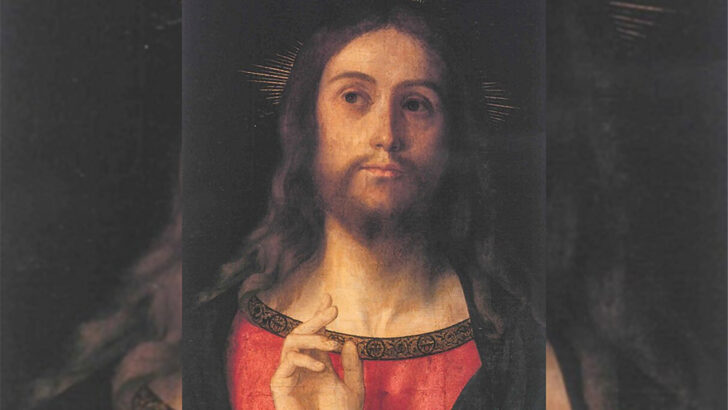The Sunday Gospel
Is 50:5-9a
Ps 116:1-2, 3-4, 5-6, 8-9
Jas 2:14-18
Mk 8:27-35
I can still remember the priest who taught us Scripture during diaconate formation talking about the passage from the Gospel that we hear this Sunday, and then asking us what seemed an irrelevant question.
“Where does it come in?” he asked us. “Where does it appear in St Mark’s Gospel?” A few people called out, “Chapter 8.” That was stating the obvious. The priest smiled. “But where is it? Where IS it?”
Awkward silence. A few of us cleared our throats and looked at our notes. And then he provided the answer we should have noticed from the start.
“It’s right in the very middle, the very centre, of Mark’s Gospel. Mark has 16 chapters. It’s here in chapter 8.” He let that sink in and explained. “This is the very heart of the Gospel message. Smack dab in the middle. This is the centre of everything.” And he paused for dramatic effect. “’Who do you say that I am?’”
Of course! But this passage does more than challenge the apostles to define Jesus. It challenges us, here and now, to make a declaration of faith, to believe, to act – not just think about what Christ means and who he is, but to say it. To make a declaration of faith.
Commitment
But how do we do that? Jesus offered an answer many may not want to hear. “Whoever wishes to come after me must deny himself, take up his cross, and follow me.”
Among other things, this passage affirms, once again, that Jesus never offered his followers the easy way out. What he was offering, instead, required sacrifice, hardship, suffering – carrying a cross, bearing a burden, even to the point of persecution and death.
For many Christians around the world today, the cross might involve punishment or imprisonment, possibly even death, for declaring oneself a follower of Christ. But for most of us, the cross is very different, almost abstract. It isn’t necessarily made of wood.
To be a Christian can mean carrying the cross of mercy – forgiving others and praying for them, when it is so much easier and gratifying to hate.
It can mean carrying the cross of patience – living with a thousand small setbacks and annoyances to perform acts of kindness, generosity or love for another.
Caring for others who might hunger for food or friendship or who yearn simply for someone to lend a hand or lend an ear”
Maybe it means carrying the cross of self-sacrifice – caring for others who might hunger for food or friendship or who yearn simply for someone to lend a hand or lend an ear.
A great old hymn tells us that the cross, whatever it may be for each of us, isn’t something to be borne like a heavy weight, but to be raised in triumph.
“Lift high the cross, the love of Christ proclaim, ‘til all the world adore his sacred name…”
In ways large and small, we are compelled to face the central question at the heart of Mark’s Gospel – “Who do you say that I am?” – and answer it not only with words, but with our lives. We are called to do nothing less than to proclaim the love of Christ.
Are we doing it? Are we doing it enough? It’s worth taking the time this week to consider it and act on it.
Who do we believe Jesus is? Who do we say that he is? How do we reveal that to others – at home, at work, in the supermarket, at the gym?
What do we do in our daily lives that tells others, “I follow Jesus.” Can they see that without us even saying a word?
Whether we realise it or not, that charge lies – literally – at the centre of the Gospel. It should also be at the centre of our lives.
Deacon Greg Kandra is an award-winning author and journalist, and creator of the blog The Deacon’s Bench.


 Cristo benedicente, Giovanni Bellini
Cristo benedicente, Giovanni Bellini